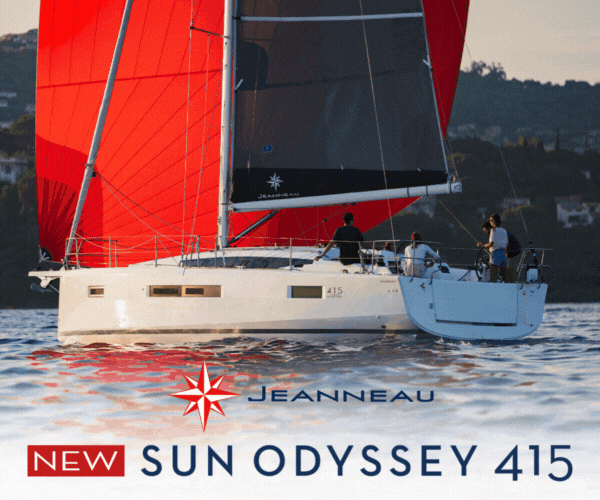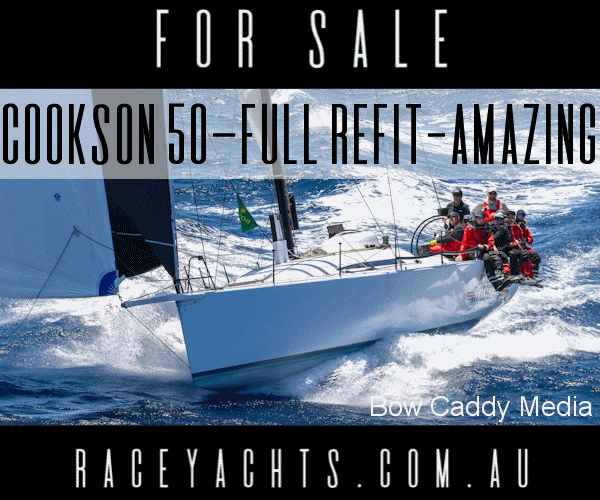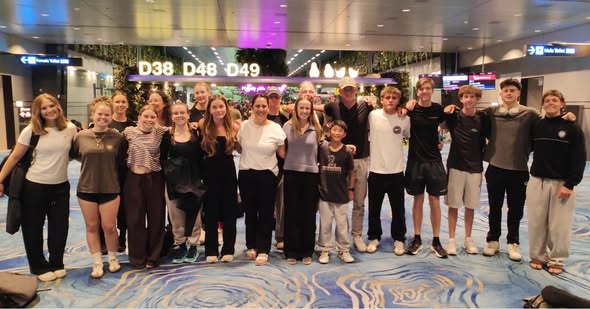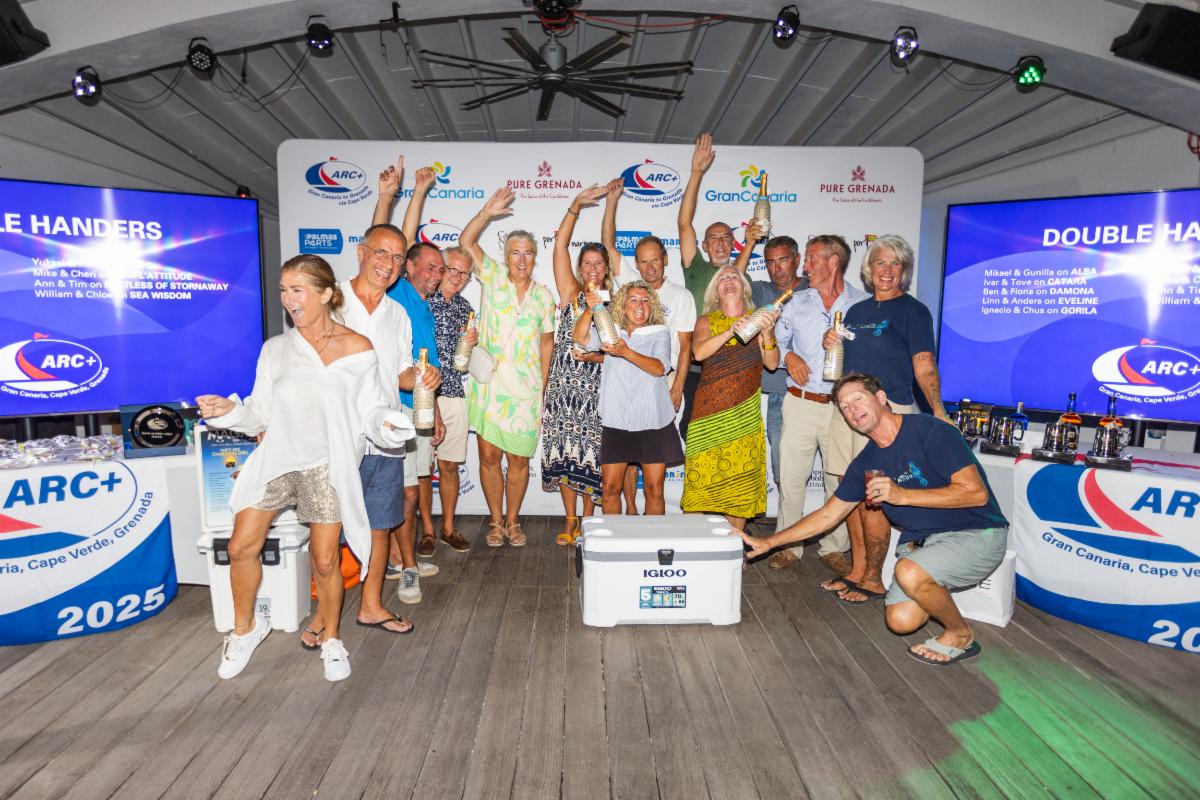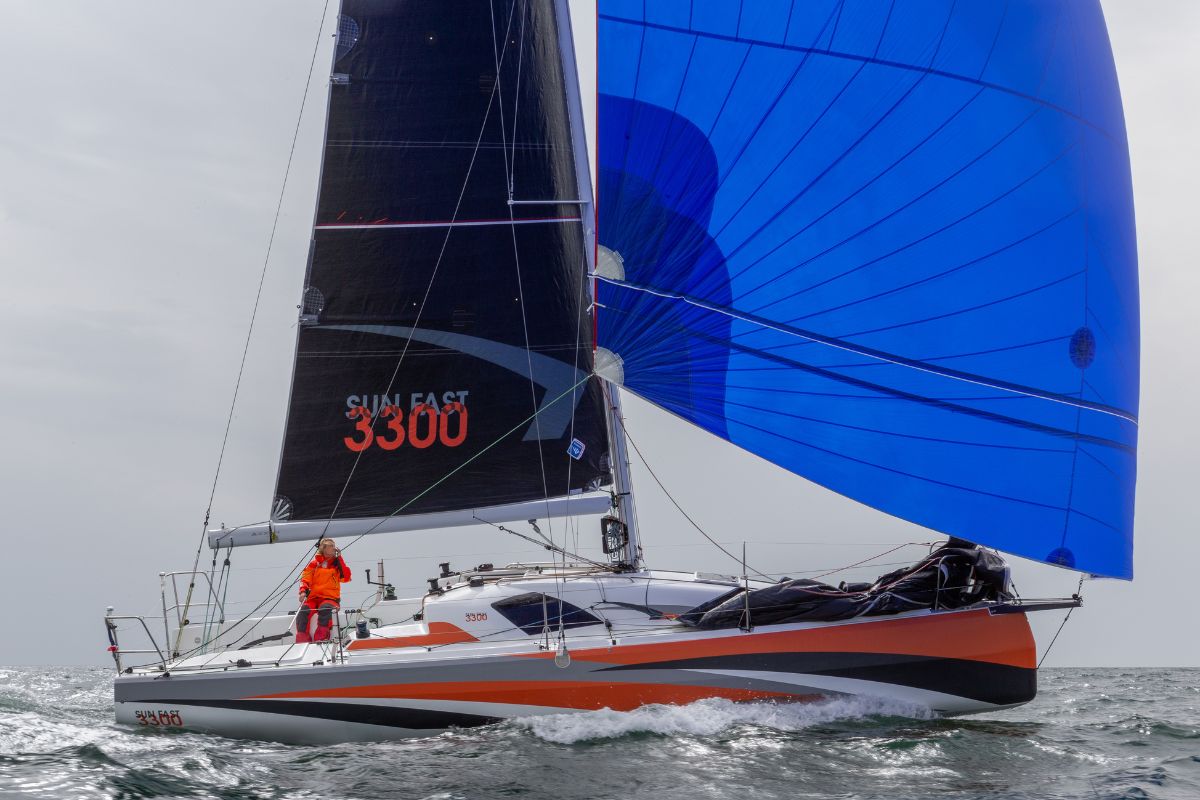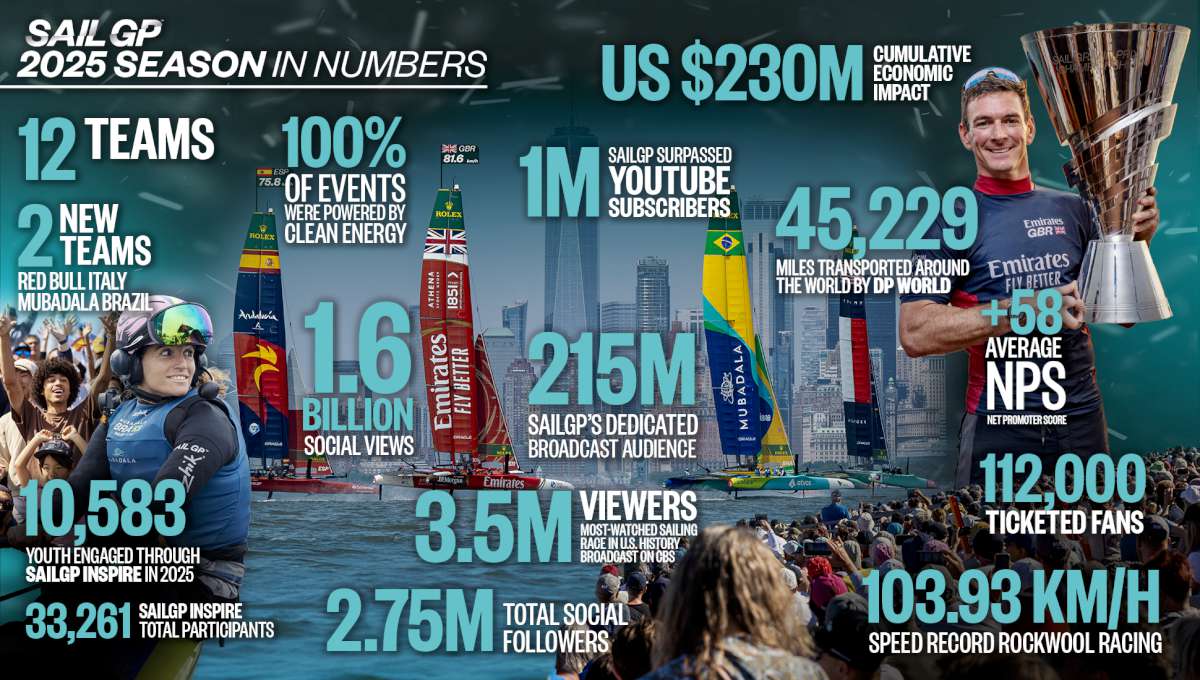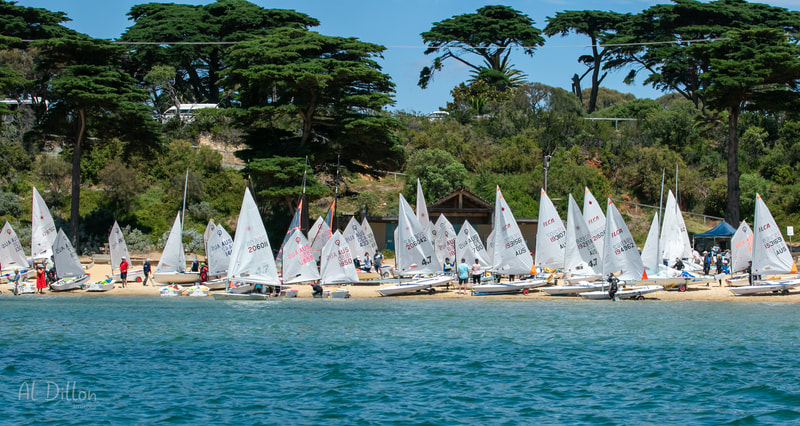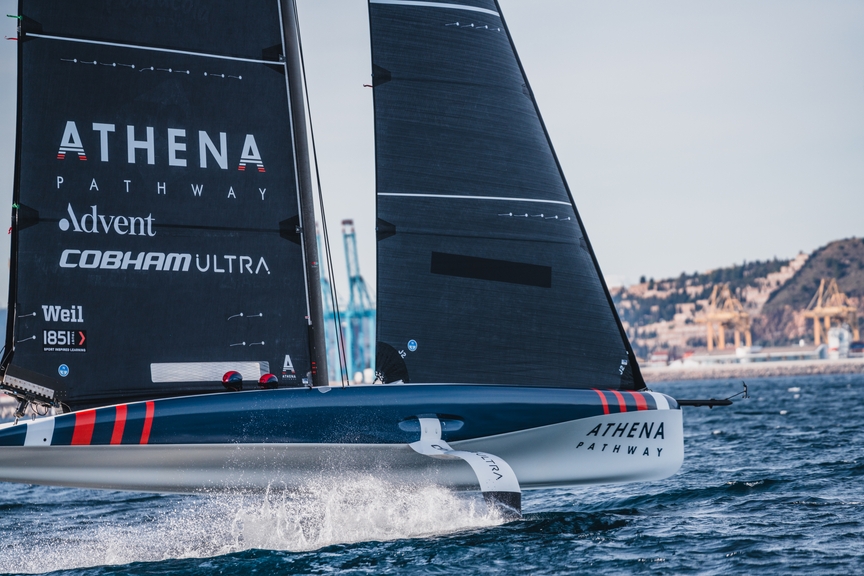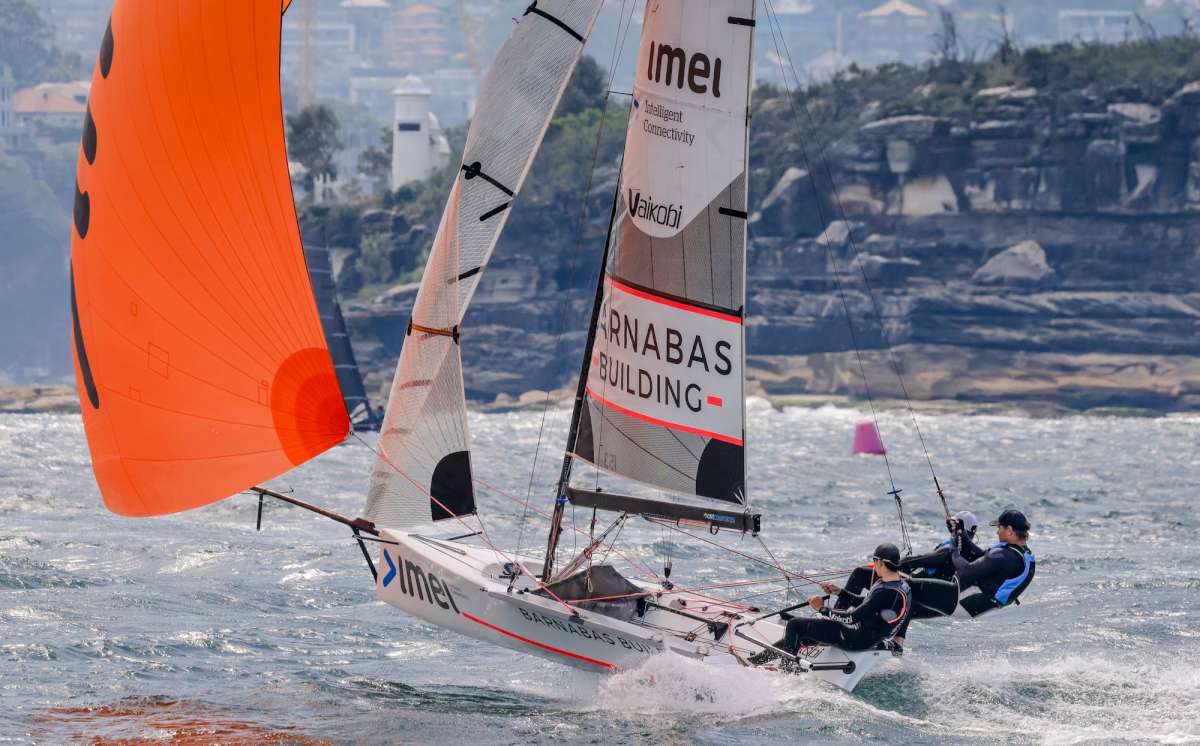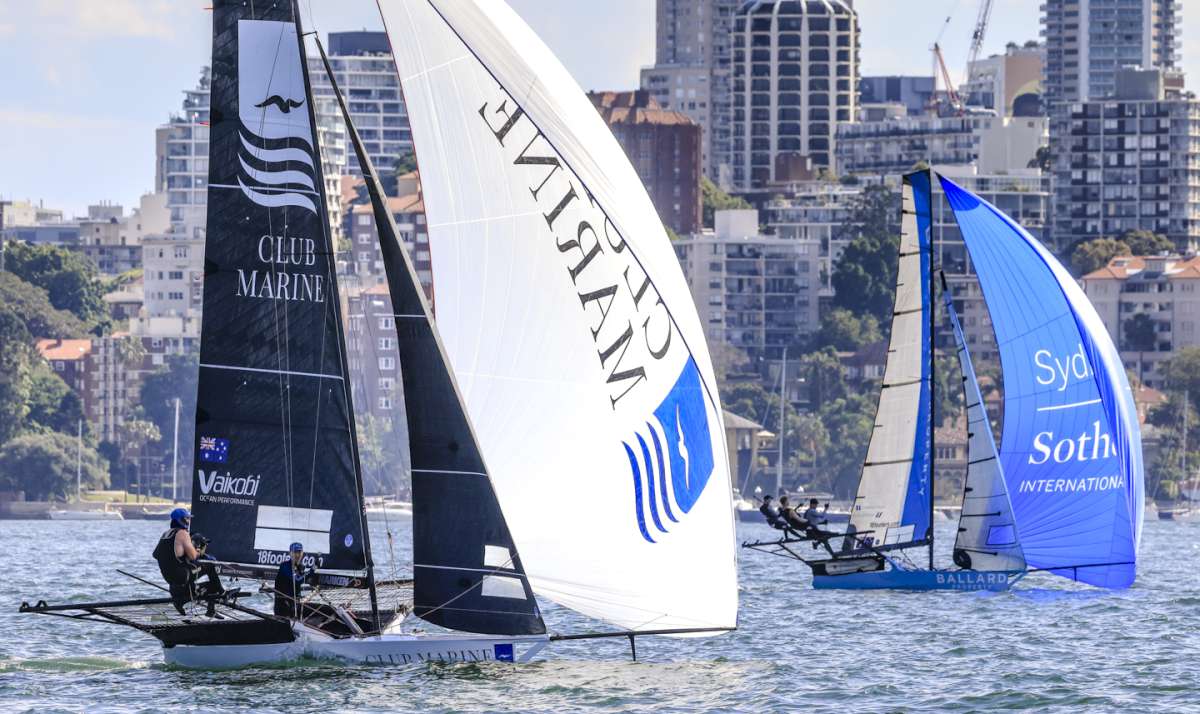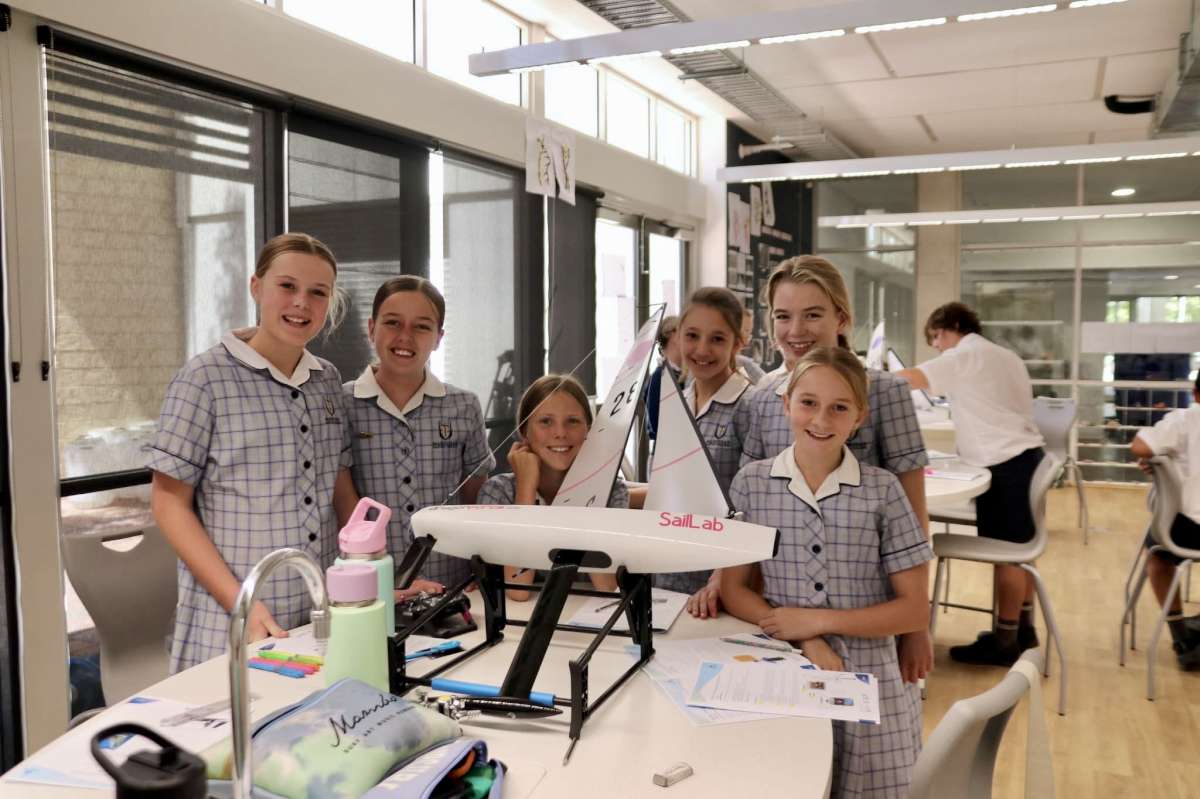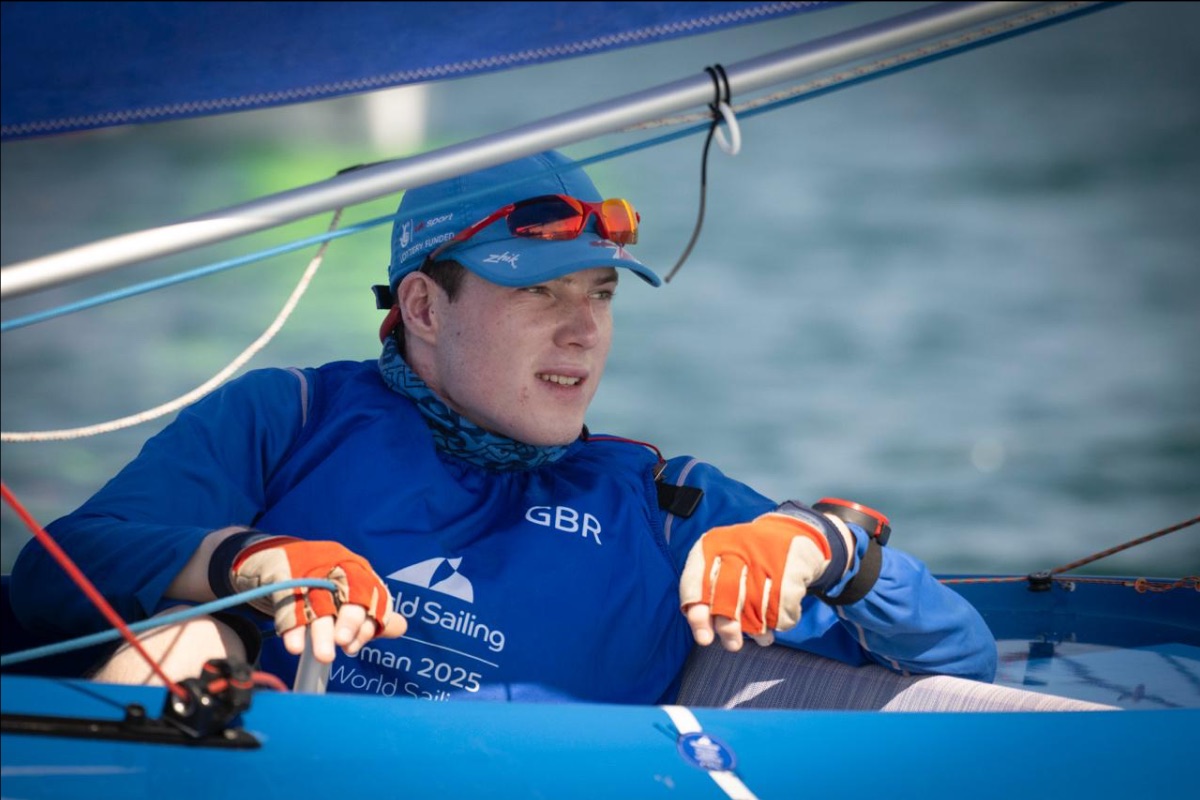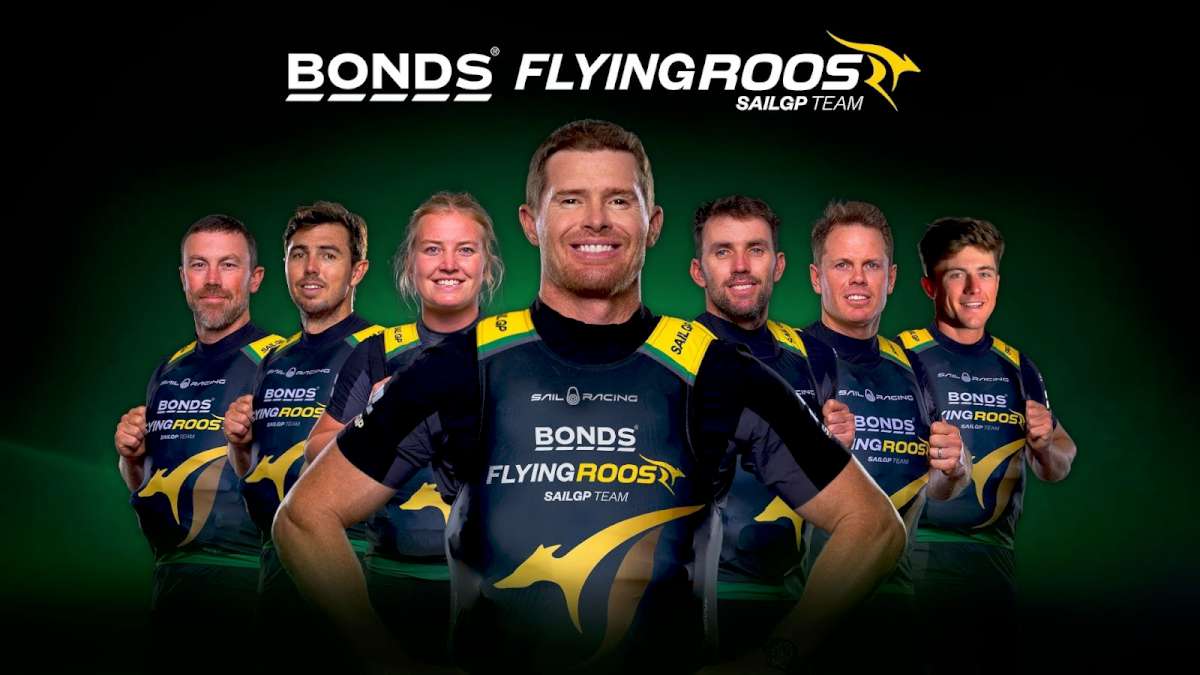8th January 2023
Leg 6 of the GLOBE40 departed Ushuaia today at 10:00 hours local time. With the first competitor making landfall at the heart of the Argentinean region of TIERRA DEL FUEGO on 16 December, participants in the GLOBE40 have relished this stopover in what is a truly unique setting, coloured by a backdrop of sea and mountains at the gateway to the Antarctic. Ahead of their bows now is a 3,273-mile course for this return to the Atlantic Ocean bound for RECIFE, where the fleet will be hosted at the brand-new RECIFE MARINA. Having covered close to 75% of the total distance for this event, there is precious little separating the teams in the overall ranking with just 1 point between the top two crews on SEC HAYAI and MILAI Around The World.
The southernmost start in the history of offshore racing
This start at 54° 48, 8 South is a first in the history of offshore racing. Indeed, with the finish of leg five from Papeete being decided just after Cape Horn, at a point outside the Beagle Channel, a 150-mile strait linking the Atlantic and Pacific Oceans with the town of Ushuaia at its centre, the start of leg 6 took place within Ushuaia Bay itself, in a light breeze that contrasted with the 40 knots that rocked the moorings the previous week. Ahead of them the competitors can enjoy a 50-mile sprint along the Beagle Channel and its spectacular backdrop of snow-capped mountains, before they reach the open waters of the Atlantic for what promises to be a complex leg with at least 3 phases: nearly 1,000 miles through the Roaring Forties with a low pressure system scheduled to roll through on 10 January, a complex zone up to Rio de Janeiro with multiple influences and finally a rendez-vous with the SE’ly trade wind to make landfall in Recife. Christian Dumard explains the course in more detail:
“After exiting the Beagle Channel in light and variable winds, mainly from the north, with gusts likely sweeping down from the mountains, the 5 duos will have to make their first strategic choice: to pass to the east or west of the Isla de los Estados. If they opt for the west, they’ll have to pass through the Le Maire Strait with its strong currents. Timing will be key to benefit from favourable currents and avoid punching into them. What comes next is not yet set in stone. Some 3 to 4 days out, the weather models are yet to reach an agreement. The primary difficulty will involve trying to avoid a depression to the north on 12 and 13 January. A westerly rounding will be called for to avoid sailing close-hauled in boisterous conditions. A long slalom will ensue between depressions rolling off South America and cells of high pressure before the competitors try to hunt down the trade wind off Rio for the home straight to Recife where the front runners will be expected around 24 January.”
A striking stopover in Tierra del Fuego
As was the case in Mauritius and Papeete before it, the hosting of an international offshore race in Ushuaia in Tierra del Fuego was a first. And it will undoubtedly be a stopover that the competitors will remember for a long time to come through its difficult access, the passage around Cape Horn and the climb up the Beagle Channel, as well as its wild splendour, its changeable and often violent weather conditions and its exuberant marine fauna, the charms of which leave absolutely no one indifferent. The town of Ushuaia has an end of the world or ‘Fin Del Mundo’ sea spirit about it, both as a destination for yachts and cruise liners making a stopover in Patagonia, and as a hostile environment, which brings together a diverse and international collection of people who gravitate towards these remote lands and form lasting bonds in a spirit of solidarity. As such, in a matter of weeks, the GLOBE40 has treated its participants to a series of exceptional contrasts ranging from the lush landscapes of French Polynesia to the magnificence of those in Patagonia and soon the festival feel of north-east Brazil as it approaches carnival season, the first since the two-year health crisis.
A return to the Atlantic with a very closely matched fleet
There are 5 coefficients colouring the last 3 legs of the GLOBE40 – leg 6 Ushuaia – Recife is coefficient 2, leg 7 Recife – Grenada is coefficient 1, and the return sprint across the Atlantic to Lorient for leg 8 is coefficient 2. The overall ranking for the event remains as hotly contested as ever with nearly 75% of the total distance, or over 21,000 nautical miles (38,800 km) already covered. With just one point separating the top two teams made up of the Dutch pairing on SEC HAYAI and a Franco-Japanese pairing on MILAI Around The World, it’s sure to be an intense sprint up the Atlantic. Indeed, the Anglo-American crew on AMHAS is just 4 points shy of the top spots and is keen to get back into contention as it did when it took the win in the Cape Verde – Mauritius leg. A little further down the leader board, GRYPHON SOLO 2 and WHISKEY JACK will also be giving their all to try to match the pace of the rest of the fleet, the bond of solidarity driving them ever onwards in this epic competition and this unprecedented adventure of a lifetime.


